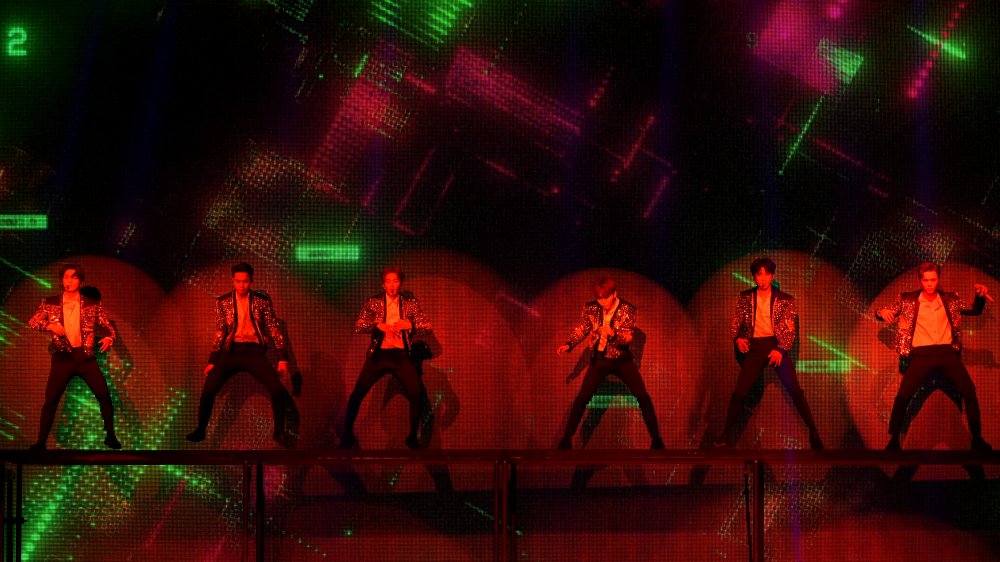The Real Reason K-Pop Stars Earn So Little Money
The starving artist stands as a trope, embodying any hope for earning anything with a creative or entertaining pursuit. The world expects these vocations not to make money. However, calling them "slave contracts," the term for a type of contract that's rife in the K-pop industry, is troublingly on the nose. These contracts ties these idols to a company for seven years, according to Beyond Hallyu ... an improvement upon the original contracted thirteen, and keeping nearly all the profits away from the performers.
In 2018, SBS reported that Prince Mak, a former member of the group JJCC, had explained just how little any individual star could expect to make. Basically, a K-pop group can expect to make $4000 from a show. But this is then subjected to a 90%:10% split between the company and the group who then have to divide the final ten percent among themselves. So, if we JJCC as an example, the initial $4000 becomes $400, which is then divided by seven into roughly $57 shares. After that, there are all the debts the members of the group have to pay anyway, meaning very little money can be made this way anyway. Combine this with the punishingly long hours and prostitution, according to Bloomberg, as well as a high mortality rate, with a disturbing number of K-pop stars dying young, and you can begin to see where the name "slave contracts" came from.
Yet, for some, the experience of being an idol seems to be worth it.
How on Earth does management justify this?
The rationale given by these managing companies, according to Beyond Hallyu, is that K-pop groups belong to one of the most expensive genres to produce. That plastic-like surface of perfection requires a lot of effort on both the idols themselves and a whole host of other forces. With every member of every group comes the necessary training for the routines, individual managers, dietitians, wardrobe assistants, living expenses, accommodations, and more. An article for Kpopstarz estimates that to debut a group of five, the managing company could expect to pay around $240,000. That, however, should be multiplied by four, as most idols train for two years before really debuting.
Still, it's all rather messed up. However, there are signs that things may change. As mentioned earlier, the contract's length has contracted from thirteen years to seven because, according to the BBC, Dong Bang Shin Ki took their management to court over the contract's absurd length and the absurd lack of payment. South Korea's Federal Trade Commission sided with them, issuing the "model contract" for the industry, including shorter times and fines for forcing their idols to renew their contracts.
So, the overall picture is not brilliant, but as the K-pop industry interacts with the larger music industry, there are hopes that they will have to evolve and start paying their idols properly. Hopes, however, don't pay the bills.

